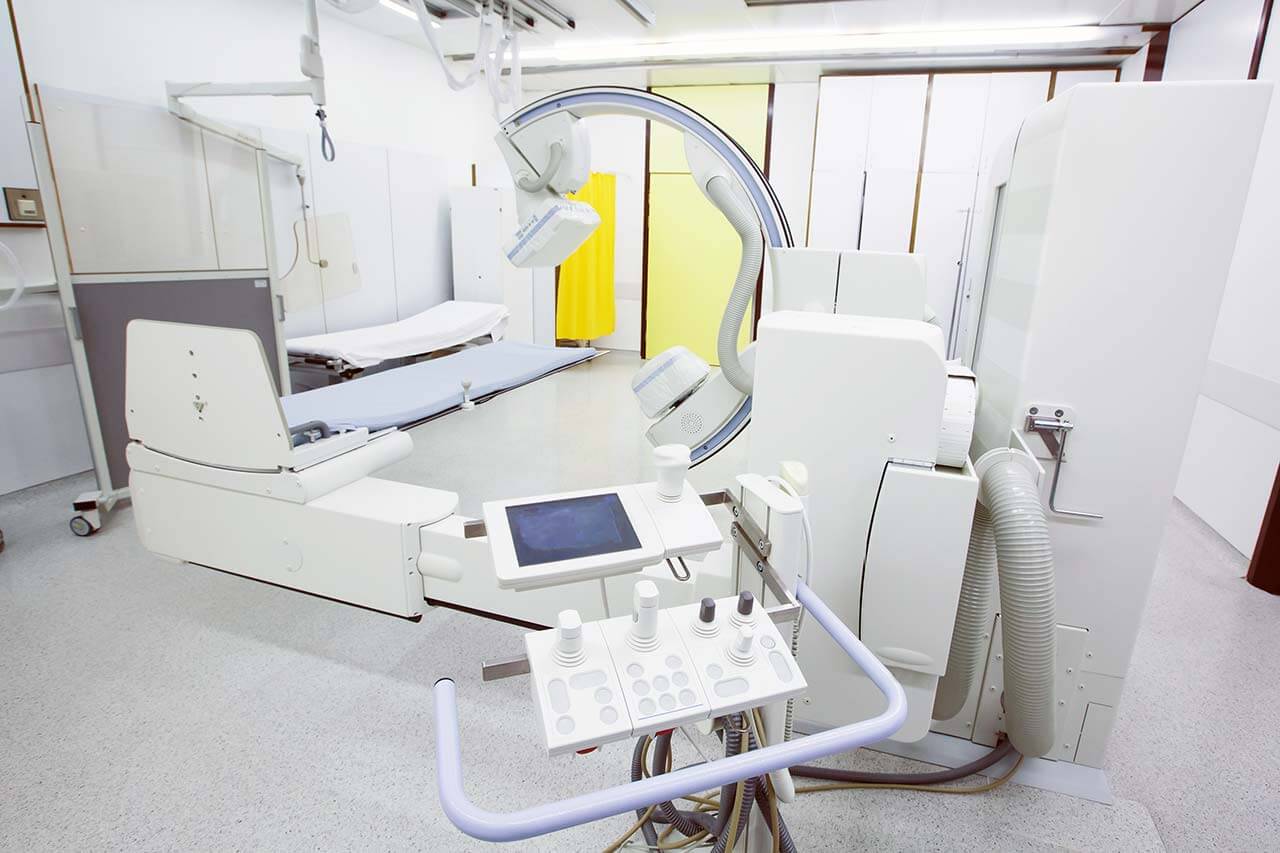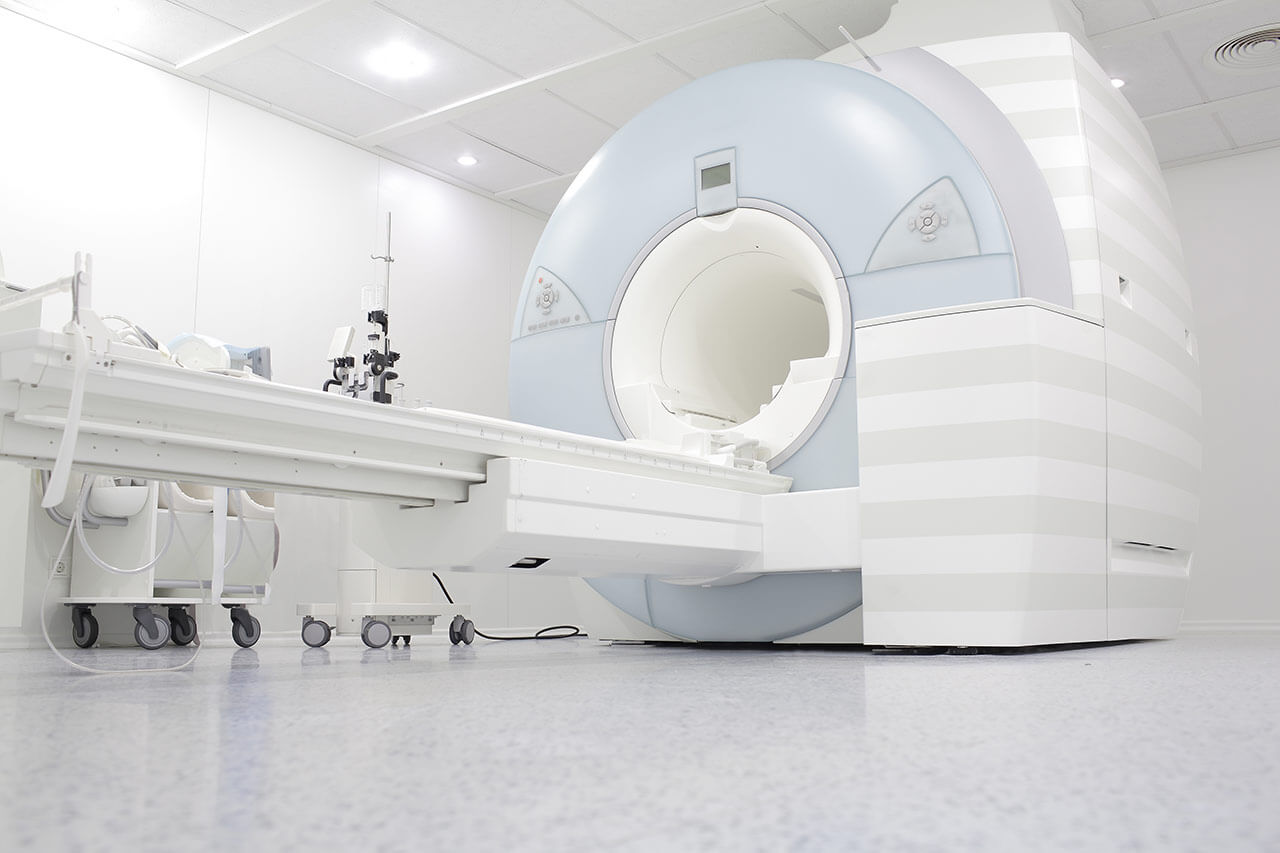
About the Department of Pediatric Cardiology at Hannover Medical School (MHH)
The Department of Pediatric Cardiology at the Hannover Medical School offers the full range of services in these medical fields. The department's specialization includes all modern invasive and non-invasive methods of diagnostics and treatment of cardiovascular diseases in children. The priority focus of the department's clinical practice is on the medical care of children and adults with congenital heart defects (certified supraregional Center for Adults with Congenital Heart Defects). State-of-the-art cardiac catheterization laboratory performs sparing minimally invasive cardiac procedures, which can help the child avoid major surgery with thoracotomy. In cooperation with obstetricians-gynecologists, prenatal ultrasound scanning of the fetal heart is performed in the womb even before birth. The department is a maximum care clinic and the largest pediatric medical facility of this kind in Germany. The department is headed by Prof. Dr. med. Philipp Beerbaum.
The competent specialists working in the department have a unique experience in the diagnostics and treatment of congenital heart diseases in infants, school-age children, adolescents, as well as in adults with congenital heart defects. The department deals with the treatment of such heart defects as ventricular septal defect, atrial septal defect, sinus venosus atrial septal defect, atrioventricular canal defect, patent foramen ovale, tetralogy of Fallot, pulmonary atresia with interventricular septal defect, aortic valve stenosis, pulmonary valve stenosis, tricuspid atresia, Ebstein's anomaly and many others. Some heart defects do not require any treatment and disappear on their own with age, but, nevertheless, in many anomalies in the development of the heart, the child needs treatment that will provide him with a high quality of life. The department's therapeutic options include conservative treatment and interventional catheter techniques. In especially complex cases, a major surgery may be required. It is performed by cardiac surgeons specializing in the correction of congenital heart defects. Prior to prescribing a particular treatment regimen for a child, cardiologists, along with cardiac surgeons, thoracic surgeons, radiologists, anesthesiologists and other specialists, study the results of the patient's diagnostic examinations and determine which type of therapy will be optimal in a given situation.
The department has an excellently equipped cardiac catheterization laboratory, which performs a variety of interventional diagnostic and therapeutic procedures. The doctors of the laboratory perform right and left heart catheterization, transseptal punctures, electrophysiological tests and myocardial biopsy (tissue sampling) for diagnostic purposes. In addition, the department's cardiologists perform modern therapeutic procedures using catheter techniques: percutaneous implantation of heart valves, stent implantation to preserve the patent ductus arteriosus in patients with left heart hypoplasia syndrome, angioplasty and recanalization of coronary arteries, balloon dilatation, atrioseptostomy, occluder placement, electrical and pharmacological cardioversion, etc. The department's medical team has thousands of successfully performed catheter procedures, so doctors are deservedly proud of their achievements and extensive clinical experience.
The department's doctors provide effective conservative treatment of such heart pathologies in children as myocarditis and endocarditis, cardiomyopathies, heart failure, arterial hypertension, pulmonary hypertension, cardiac arrhythmias (heart rhythm disturbances), fainting and other pathologies. In case of these diseases, the department's pediatric cardiologists usually use only drug therapy. The required complex of drugs is selected strictly on an individual basis, based on the diagnostic results.
The department's diagnostic and therapeutic options include:
- Diagnostics
- Echocardiography, including color Doppler ultrasound, 3D analysis, transesophageal echocardiography, fetal echocardiography (ultrasound scanning of the fetus in the womb, in collaboration with the Department of Gynecology)
- Diagnostics for detecting heart arrhythmias (ECG, 24-hour ECG monitoring, stress ECG)
- Diagnostics for measuring blood pressure (24-hour blood pressure monitoring)
- Pulmonary function tests (in collaboration with the Department of Pediatric Pulmonology)
- Computed tomography (CT)
- Magnetic resonance imaging (MRI)
- Diagnostic cardiac catheterization
- Right and left heart catheterization (including transseptal punctures)
- Electrophysiological studies
- Myocardial biopsy
- Treatment
- Therapeutic cardiac catheterization
- Percutaneous heart valve implantation (pulmonary valve, Valve-in-Valve technique, pulmonary or tricuspid valve)
- Pulmonary valve opening for pulmonary atresia
- Stent implantation for patent ductus arteriosus (for example, as part of hybrid surgery for left heart hypoplasia)
- Angioplasty (restoration of vascular patency using a balloon or stent implantation, for example, vessels of the lungs, aorta, vena cava, arteries of the lower limbs, renal arteries, portal vein)
- Recanalization (reopening) of vessels, including mechanical and medical thrombolysis
- Balloon dilatation of the heart valves (for example, pulmonary or aortic valves, also in neonates and premature infants with critical heart failure)
- Atrial septostomy (Rashkind procedure)
- Closure of shunts between vessels or heart defects using coils
- Electrical and pharmacological cardioversion
- Implantation of indwelling catheters (for example, Broviac, Hickman catheters)
- Bronchial interventions (in cooperation with the Department of Pediatric Pulmonology)
- Heart surgery using advanced cardiac technology in collaboration with cardiac surgeons (all surgical interventions for the treatment of congenital heart defects, including state-of-the-art valve replacement techniques, neonatal surgery, surgical treatment of adults with congenital heart defects)
- Installation of all classic pacemakers, implantable cardioverter-defibrillators (ICDs) for the treatment of arrhythmias
- Various methods of replacing or supporting the function of the heart and lungs (extracorporeal membrane oxygenation (ECMO)), "Berlin heart", ventricular assist device (VAD))
- Therapeutic cardiac catheterization
- Other medical services
Curriculum vitae
Prof. Dr. med. Philipp Beerbaum studied medicine at the University of Cologne. He also completed an internship in Pediatric and Adolescent Medicine there. In 1996, he stopped working at the Heart and Diabetes Center NRW in Bad Oeynhausen and continued his education in the field of Pediatric Cardiology and Pediatric Intensive Care.
In 2001, he held the position of Senior Physician of the Working Group on the Cardiovascular System MRI and of an interdisciplinary outpatient clinic specializing in the treatment of adults with congenital heart diseases. Since 2002, he has been involved in the founding of a network of competent private health care facilities specializing in the treatment of congenital heart diseases, while simultaneously performing several multicenter clinical trials.
In 2007, Prof. Beerbaum was offered the position of a Senior Lecturer at King's College London (England) in the field of Pediatric Cardiology. At the same time, he received clinical experience as a Pediatric Cardiologist at the Evelina London Children's Hospital, and also held the position of the Head of the Cardiac MRI Section for the diagnostics of congenital heart diseases.
In 2011, Prof. Beerbaum worked at the University of Nijmegen (the Netherlands) for a short time, and in 2012 he was appointed as the Professor of Pediatric Cardiology and Intensive Care at the Hannover Medical School.
His main research focuses cover all non-invasive imaging methods for congenital heart defects – computed tomography, magnetic resonance imaging and echocardiography.
Under the direction of Prof. Beerbaum, the Department of Pediatric Cardiology at the Hannover Medical School (in cooperation with the Department of Cardiothoracic Surgery) has become one of the largest centers for the treatment of patients with congenital heart defects of all ages in Germany. Prof. Berbaum is interested not only in providing excellent medical care for the patients of his department, but also in the expansion of activities in the treatment of adults with congenital heart diseases and in the field of prenatal counseling.
Prof. Berbaum is a member of the European Society of Cardiology (ESC), the European Association of Cardiovascular Imaging (EACVI), the German Society for Paediatric and Adolescent Medicine (DGKJ), the German Society for Pediatric Cardiology (DGPK), the Association for European Paediatric Cardiology (AEPC) and the American Heart Association (AHA). In addition, he is a member of the European Examination and Certification Commission for the use of magnetic resonance imaging for the diagnostics of congenital and acquired heart defects in children. Dr. Philipp Beerbaum is a member of the Scientific Advisory Board of the German Heart Research Foundation and the German Association for the Support of Pediatric Cardiac Centers. He also co-founded a Competence Network specializing in the treatment of congenital heart diseases in children.
Photo of the doctor: (c) Medizinische Hochschule Hannover (MHH)




